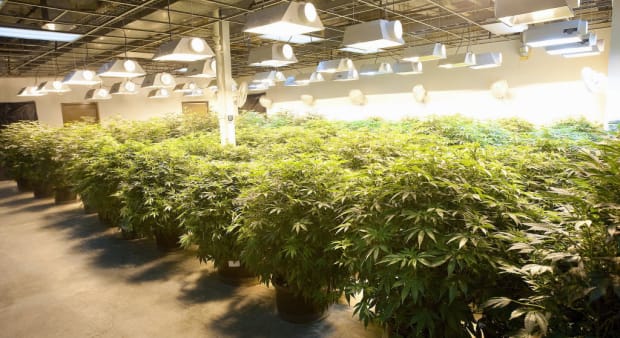After decades of being lumped in with harder drugs, cannabis has had a rocky path to the mainstream, due in part to its designation as a schedule 1 substance under the Controlled Substances Act.
This designation means the drug has a "high potential for abuse, no currently accepted medical use in treatment in the U.S., and a lack of accepted safety for use under medical supervision."
But critics of that approach say that as attitudes about the drug, and increasingly positive opinions about its potential uses in medicine, have changed, its regulation by the federal government has not kept up.
In claiming that there is no accepted medical use for cannabis, the Justice Department's Drug Enforcement Administration is denying the reality that many Americans use marijuana as a painkiller. (Here's an overview from practicalpainmanagement.com.)
Now, one cannabis-related company is offering staff members who need the drug an unusual employee benefit.
Reimbursement for Staff's Purposeful Use
Jointly, a cannabis wellness company, said Monday that it would offer a wellness benefit that includes coverage for purposeful cannabis consumption. Jointly will reimburse its employees as much as $150 a month for lawful purchases of cannabis products.
The program "is not only aligned with Jointly's core mission and beliefs, but also helps break the stigma and start a new conversation around cannabis and wellness," Eric Gutshall, Jointly's co-founder and chief development officer, said in a statement.
The company said the new benefit was developed in conjunction with the closely held Los Angeles company's legal, tax and human-resources advisers.

Last week, Jointly closed a $5 million seed-funding round. It'll use the funds, from a sale of notes to private investors, to "scale [its] software and technologies that advance cannabis wellness -- benefiting consumers, budtenders, and retailers."
Founded in 2018, Jointly offers what it calls an “experience-based wellness app for purposeful cannabis consumption. Cannabis wellness enthusiasts use the platform to track their experiences to improve their results.”
Banking Reform Bill Push Ahead of Midterm Vote
Cannabis activists say they are in a race against time as they push President Joe Biden to sign reform legislation ahead of this year's midterm elections. Their concern is that if the Democratic Party loses its control of both houses of Congress, their hoped-for legislative changes would fail.
More than 20 cannabis CEOs lobbied Congress members from both parties to pass the Safe Banking Act last week, The Hill reported. The law would enable legally operating cannabis firms to use banking services and credit cards, the Hill reported.
“There is certainly momentum building around trying to get something done this year in the Senate. On both the Republican and Democratic side we’re seeing consensus for Safe Banking as being the piece of legislation that could pass,” Curaleaf Chief Executive Joe Bayern told The Hill.
Marijuana Switch From a Colorado Senator
As the politics and the science change, you can expect some politicians to change with them.
Sen. John Hickenlooper (D-Colorado) is prominent among those who've changed their opinion on cannabis.
When he was governor of Colorado in 2012, Hickenlooper tried to persuade voters to reject a ballot initiative to legalize marijuana, saying that the ballot measure "sends the wrong message to kids,." according to a Marijuana Moment report.
“We really did lead the way in marijuana legalization. It’s been 10 years since we legalized recreational marijuana through our Amendment 64 statewide citizen-driven initiative that I opposed,” he said at an event organized by the Coalition for Cannabis Policy, Education and Regulation.
“I didn’t want Colorado to be the experiment -- the Petri dish -- for one of the great social experiments of the century so far. And we legalized it even though I opposed it.”
But now?
"I think we’ve proven and demonstrated that there is no increase in experimentation among teenagers. There is no change in frequency of use, no change in driving while high -- all the things we most worried about didn’t come to pass,” he said at the CPear event.
Marijuana-Related Criminal Charges Fell in 2021
Fewer people were charged by federal officials with marijuana-related crimes in 2021 compared with previous years, according to data compiled by the U.S. Sentencing Commission in its 2021 Annual Report.
Drug offenses accounted were the largest single group of offenses in 2021, with 31.3% of all reported cases. Methamphetamine cases were the most common, accounting for 48% of those drug offenses.
But just under 1,000 people were charged federally with violating marijuana laws in 2021, Norml reported, or less than 6% of those charged with violating federal drug laws. Compare that with 2012, when officials charged nearly 7,000 people with federal marijuana offenses.







